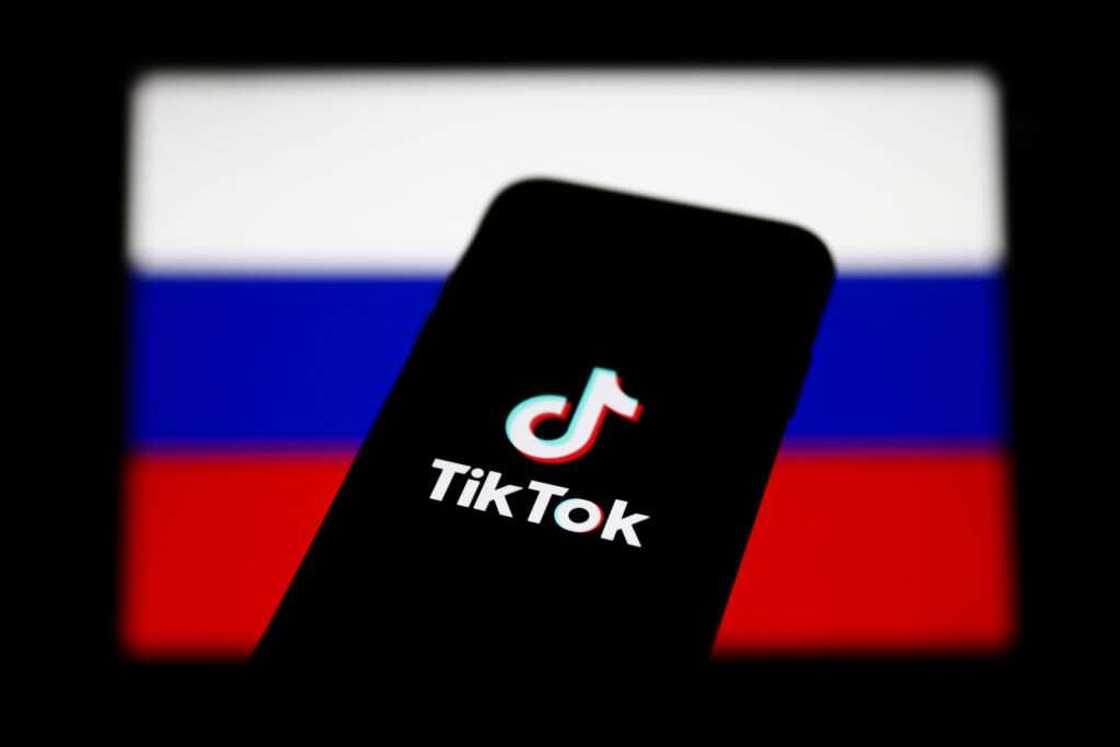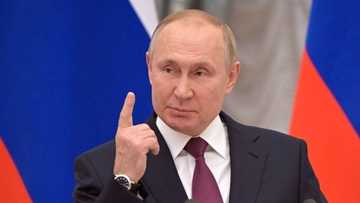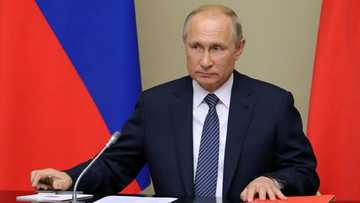Chinese Owned Social Media, Tik-Tok Join Facebook, YouTube, Google, Others to Ban Russia State Media
- Tik-Tok, the video sharing platform has become the latest social media company to slam a ban on Russia-controlled media outlets
- The company said it is restricting access to two of Russia's state-run media, Russia Today and Sputnik from being accessed in Europe
- Microsoft also said it taking steps to remove all contents from the two media house from their platforms
PAY ATTENTION: Click “See First” under the “Following” tab to see Legit.ng News on your Facebook News Feed!
Pressure is mounting on Russia over its invasion of Ukraine as more companies are blacklisting their state-run media.
The latest in the global isolation of the pariah state is the ban by video-sharing platform, Tik-Tok which joined other global social media companies to place a ban on the country’s pro-government media.

Source: Getty Images
The short-form video platform toed the line of mainstream media firms to restrict the Russian government from putting out their propaganda through social media.
Pressure mounts on Putin
The comes as global pressure from all social media companies mounts in order to curtail Russia’s propaganda machine and force it to withdraw from Ukraine.
PAY ATTENTION: Join Legit.ng Telegram channel! Never miss important updates!
A report by the Wall Street Journal (WSJ), a spokesman for Tik-Tok confirmed this as he stated that the media firm has been in touch with the European Union and has restricted access to the Russian government-controlled media.
The country’s Public Radio (NPR) also confirmed that Tik-T0k had blocked two of their media outlets, namely Russian Today and Sputnik in the EU.
This means that users of the platform in EU countries would not have access to information posted by those media outlets on the platform.
Also, EU President Ursula Von Der Leyen declared a ban on two Russian media outlets in the EU region through her Twitter Page.

Read also
Just in: Putin bans Russians from transferring money abroad as western sanctions bite harder
She said:
“Second, we will ban the Kremlin’s media machine in the EU. The state-owned Russia Today and Sputnik, and their subsidiaries, will no longer be able to spread their lies to justify Putin’s war. We are developing tools to ban their toxic and harmful disinformation in Europe.”
Microsoft reacts…
Software giant, Microsoft, reacting to the EU’s decision to ban Russian media in Europe, said on their blog post that its on the issues and that they would remove RT and Sputnik contents from App Store and from all its sites.
The company said it is moving very fast to new steps to reduce the exposure of Russian state media propaganda and also ensure that its own platforms do not inadvertently fund its operations.
Microsoft said
“We are removing RT news apps from our Windows app store and further de-ranking these sites’ search results on Bing so that it will only return RT and Sputnik links when a user clearly intends to navigate to those pages. Finally, we are banning all advertisements from RT and Sputnik across our ad network and will not place any ads from our ad network on these sites,” Microsoft said.

Read also
Meta joins global companies piling pressure on Russia, bans state media from running ads on its Platforms
The world is responding to the attacks of Russia on Ukraine and continues to side with the Ukrainian government as they defend their home from the attacks of the Russian government.
Meta joins global companies piling pressure on Russia, bans state media from running ads on its platforms
Legit.ng has reported that Facebook, owned by Meta has become one of the latest global companies to pile economic pressure on Russia over its invasion of Ukraine.
The parent company of both Facebook, Instagram, WhatsApp and Messenger said it will stop Russia-owned state media from monetising content on its platforms as a way to pressure Kremlin to pull back from Ukraine.
The company announced the ban via a tweet by its Head of Security Nathaniel Gleicher.
Source: Legit.ng


